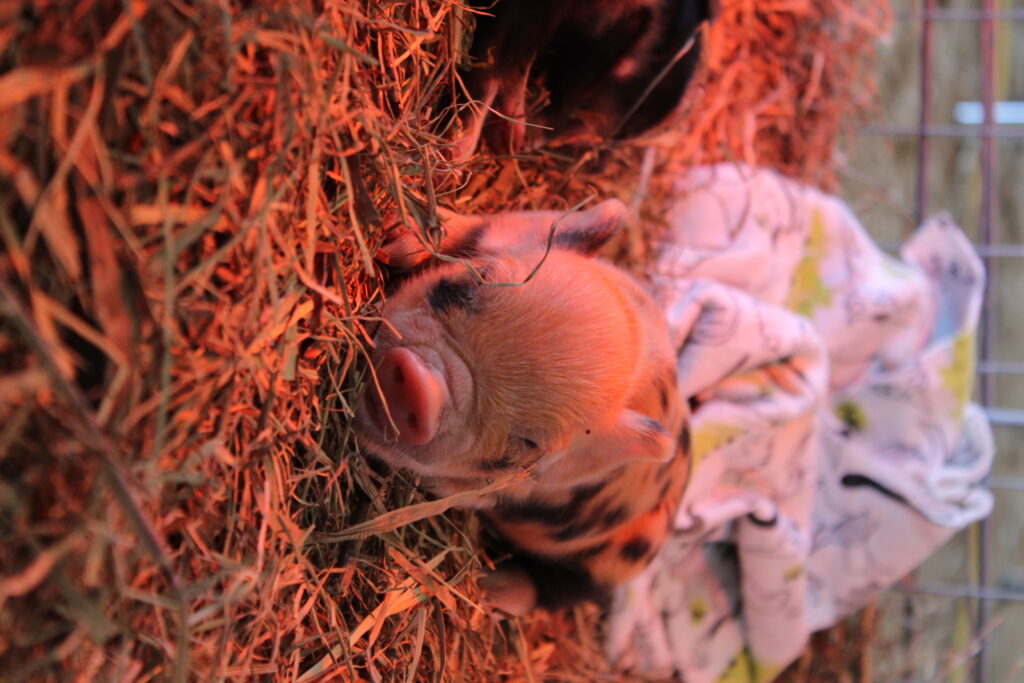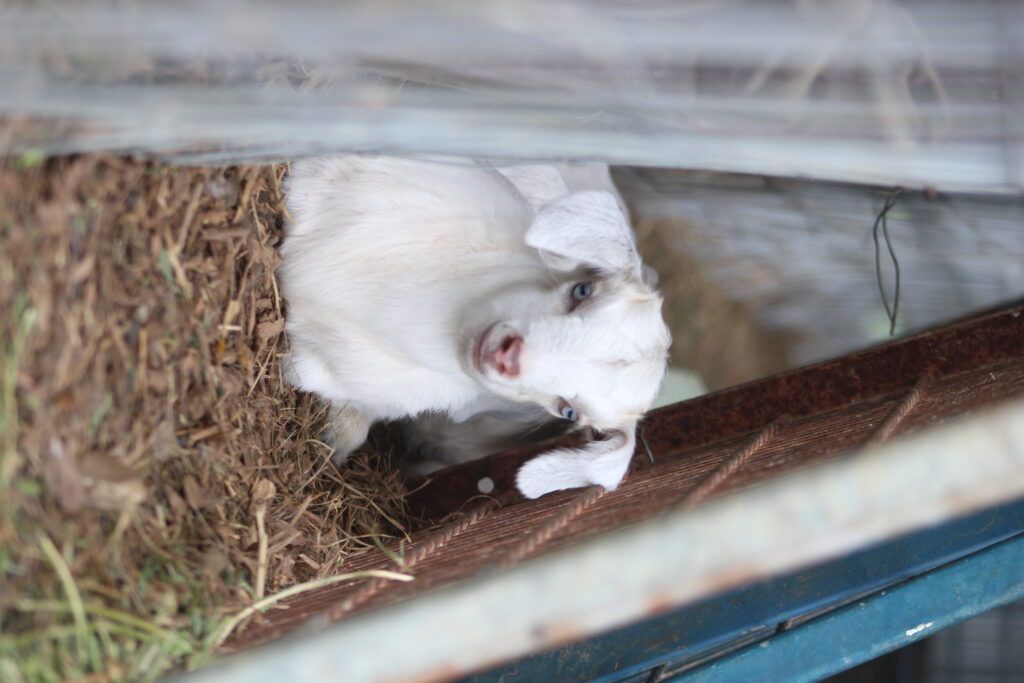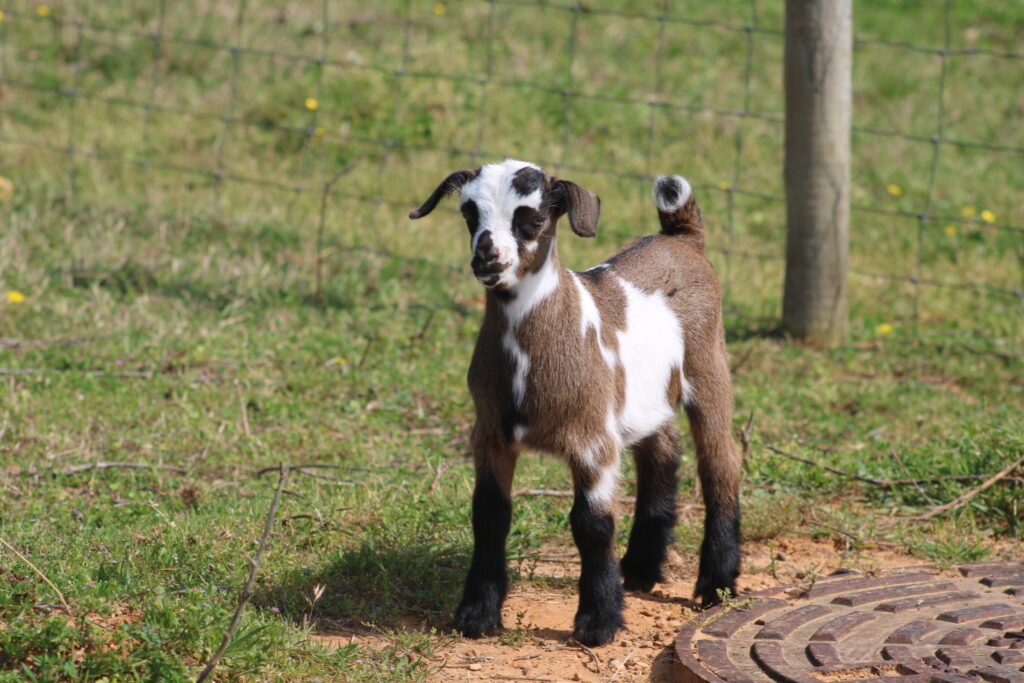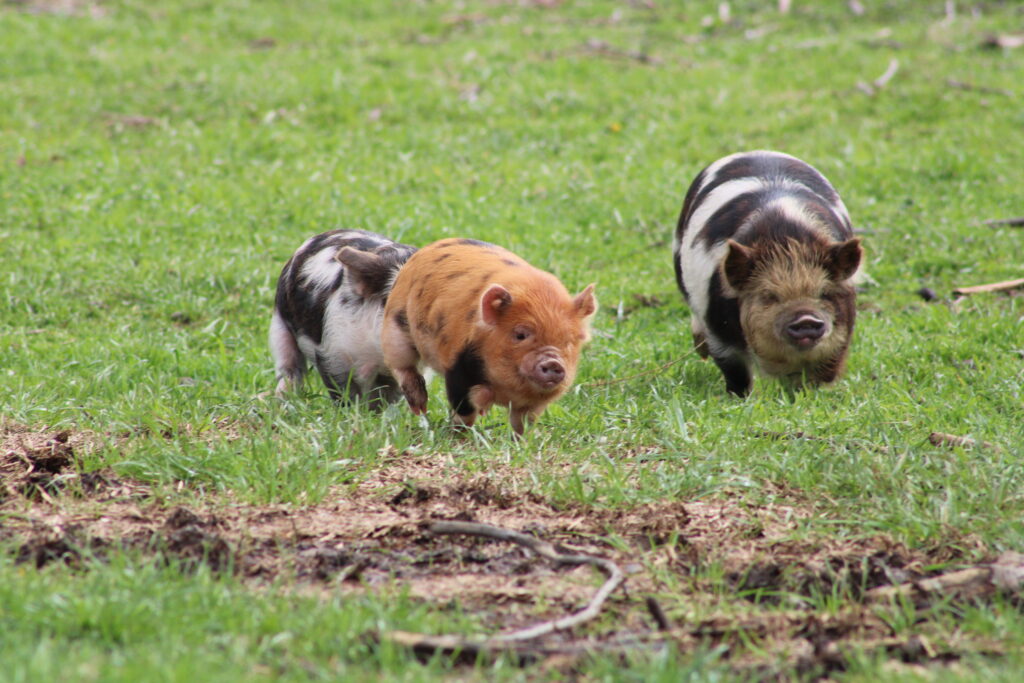By Liliana Torreblanca
Eagle Editor
Kunekunes is an adorable small breed of pigs from New Zealand. They are known for being very docile and friendly companions. kunekunes became a regularly-used word at the Northeast Texas Community College agricultural department since the first original Kunekune breeding pair arrived on the farm July 17, 2021.
Over the winter break, Agriculture Director Rene McCraken helped an eight-year-old female kunekune named Chive, welcome eight piglets of her own into this world. Sadly only six of those piglets survived and are now thriving and enjoying the mud between their little toes.
A few weeks after Chive gave birth, another female kunekune who goes by number 41 also gave birth to four little bundles of joy. McCracken said while some may think it is a difficult job to help the sows give birth, it is not something she considered hard. “The babies come out so aware you don’t have to take the afterbirth, and you don’t have to do anything with the navel cord. They come out, and they are like where is the food.” She did say that one thing that is difficult is keeping them warm right after they are born. McCraken said, “I had to keep them warm and make sure they didn’t get cold.”
On the morning of Dec. 8, 2023, McCraken sent out an email calling for donations of towels and blankets. This was to be able to hold and wrap them up and keep them warm while Chive was in giving birth. The babies could have easily passed away due to the cold temperature. McCraken explained that when the sow is giving birth the piglets will try and nurse, but the sow will not allow them to nurse until after she is completely finished giving birth.
Another issue that is found while taking care of pigs is that they can easily get sick and develop pneumonia. Chives’ first litter was delivered in 2021 was 8 piglets, but she unfortunately lost one to pneumonia so this year the agricultural department is keeping a close eye on the piglets. McCraken said one of the measures that are being taken include making sure all the piglets are eating and growing in a healthy environment.
One of number 41 piglets already received the name “Special.” The reason behind the name is quite literally unique. Kunekunes have distinct characteristics that separate them from other breeds, one of them being their little wattles or Piri Piri’s that hang from their little squishy faces. On the other hand, Special decided one of his wattles would be on his neck where it was supposed to be and another on his ear making him unique to his siblings and other pen mates.
Professor McCraken said, “They have to have the waddles that hang on their neck at least one or they can’t be registered that a part of the standard that the association that they say they have to meet in order to be registered.” Thankfully although he is different, he will still be able to be registered. His malformation does not affect his way of living, and he will be able to live a normal and healthy life.
Today the NTCC agriculture department is housing 10 kunekunes piglets. They also house four female and three male adults that are just adorably perfect as well. Currently there is a possibility that two more female Kunekunes might give birth, but we are not quite sure yet.
The NTCC agriculture department has four different goat breeds, Spanish goats who are known for their curved horns, kiko, that are usually bearded, angora, that are usually short, and everybody’s favorite myotonic goat also known as the fainting goat. Currently there are around 17 kids and 21 adult females that are bred and waiting to give birth. McCracken said we could potentially have up to 42 kids. The farm also has nine young females who will not be having kids. The Ag department also houses three male billy goats.
On March 23, the first two baby goats were born. As this story is being written, the number is still growing with the most recent mama goats having a total of three kids. McCracken said the hardest part about kidding is making sure the doe or female goats are separated from the herd before they give birth. This process is done so the baby goats bond correctly with there mother.
McCracken explained the goats were originally brought for sustainable practices utilizing them for the agriculture’s muscadine vineyard. Later McCracken realized that goats were also not only sustainable but could also be profitable. Goatsare also social animals, and can be great co-grazers alongside cattle.
McCracken plans to introduce the babies to the community by hosting goat yoga in the near future.



